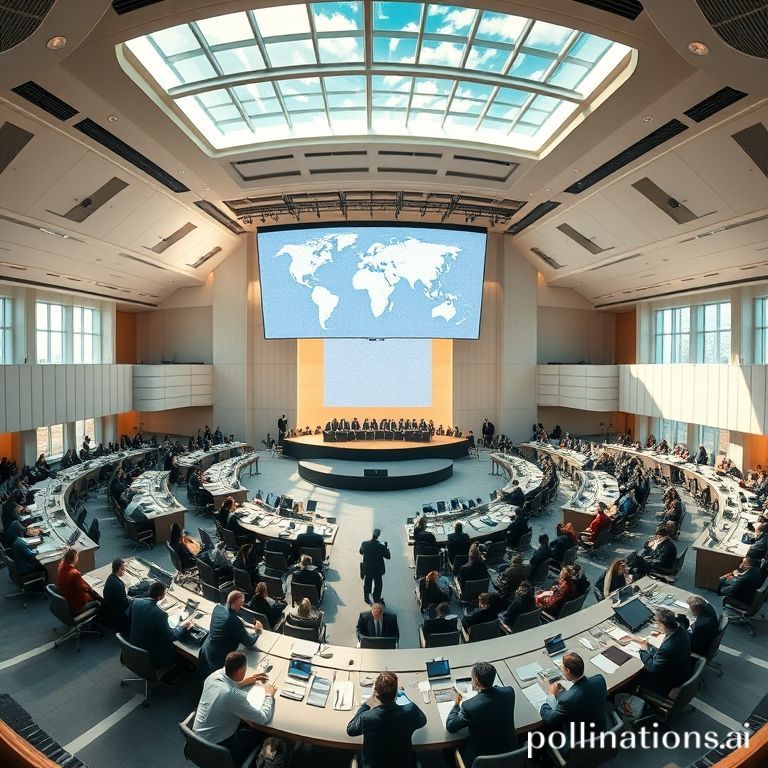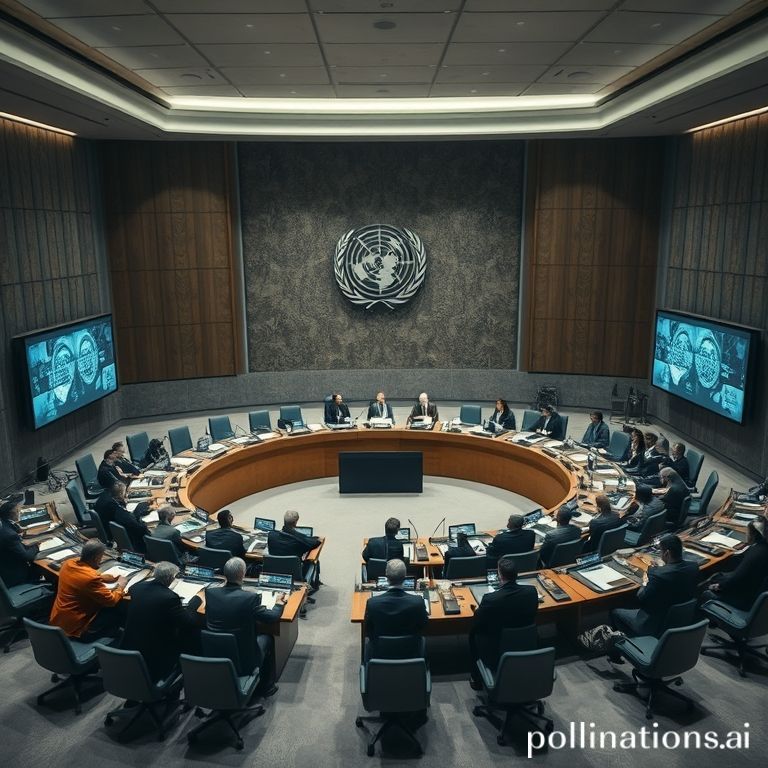
The world recently turned its attention to a pivotal gathering of leaders, experts, and stakeholders from across the globe. This highly anticipated event, a **Global Summit Held** with the aim of addressing humanity’s most pressing challenges, has concluded with significant outcomes that promise to reshape international cooperation and policy for years to come. From climate change mitigation to economic recovery and health security, the discussions were robust, the negotiations intense, and the resulting declarations remarkably ambitious. This article delves into the five essential breakthroughs that emerged from this momentous occasion, highlighting their potential impact and the path forward.
The Significance of the Global Summit Held in a Changing World
In an era characterized by complex interconnected crises, the necessity for unified global action has never been more apparent. This particular **Global Summit Held** was convened against a backdrop of escalating climate emergencies, persistent economic inequalities, and the lingering shadow of global health threats. Leaders recognized that fragmented approaches would no longer suffice, emphasizing the critical need for coordinated strategies that transcend national borders.
The summit brought together representatives from nearly every nation, alongside key non-governmental organizations, scientific bodies, and private sector innovators. This diverse assembly ensured a comprehensive perspective on the multifaceted issues at hand, fostering a rich environment for dialogue and problem-solving. The preparatory work leading up to the summit was extensive, involving countless hours of expert consultation and diplomatic negotiations, all designed to pave the way for actionable resolutions.
Breakthrough 1: A Unified Front on Climate Action
Perhaps the most celebrated outcome of the summit was the unprecedented consensus reached on accelerating climate action. Nations committed to more aggressive emissions reduction targets, with a collective pledge to phase out fossil fuel subsidies and significantly increase investments in renewable energy infrastructure. This landmark agreement surpassed previous commitments, signaling a renewed urgency in the fight against global warming.
Specific commitments included the establishment of a new global fund for climate adaptation and loss and damage, providing much-needed financial support to vulnerable nations. Furthermore, several major economies announced ambitious timelines for achieving net-zero emissions, backed by concrete policy frameworks and technological roadmaps. The spirit of cooperation, even among historically divergent parties, was palpable throughout the climate discussions, marking a true turning point.
Implementing the Climate Mandate from the Global Summit Held
Beyond pledges, the summit also focused on the mechanisms for accountability and implementation. A new international monitoring body was proposed to track national progress against agreed-upon targets, ensuring transparency and fostering a sense of shared responsibility. This body will leverage advanced satellite imagery and independent scientific assessments to provide real-time data on emissions and environmental changes.
Technological innovation was highlighted as a critical enabler for achieving these ambitious goals. Discussions focused on scaling up green technologies, from advanced battery storage to carbon capture solutions, through collaborative research and development initiatives. The private sector was urged to play a more significant role, with incentives for sustainable investments and green job creation being a central theme.

Breakthrough 2: Economic Resilience and Inclusive Growth Strategies
Addressing the lingering economic fallout from recent global crises was another central theme, leading to significant breakthroughs in fostering economic resilience. The **Global Summit Held** produced a comprehensive framework for inclusive growth, emphasizing policies that reduce inequality and promote sustainable development, particularly in developing nations. This framework includes initiatives for debt relief, fairer trade practices, and increased access to global markets for small and medium-sized enterprises.
Leaders agreed on the need to reform global financial institutions to better serve the needs of all countries, advocating for more equitable representation and decision-making processes. Discussions also centered on building resilient supply chains, diversifying economic dependencies, and investing in human capital through education and vocational training programs. The aim is to create economies that are not only robust but also equitable and resistant to future shocks.
Breakthrough 3: Advancing Global Health Security and Pandemic Preparedness
The recent global health crisis served as a stark reminder of humanity’s shared vulnerability, making health security a paramount concern at the summit. The **Global Summit Held** forged a strong commitment to strengthening global health infrastructure, with a particular focus on pandemic preparedness and response. This includes substantial new investments in research and development for vaccines, therapeutics, and diagnostics, ensuring equitable access for all nations.
A new international treaty on pandemic preparedness was discussed, aiming to streamline information sharing, coordinate emergency responses, and ensure fair distribution of medical resources during future health crises. The importance of strengthening local health systems, training healthcare workers, and improving surveillance capabilities in every region was repeatedly emphasized. The goal is to build a world where no country is left behind in the face of a health emergency.
The Health Imperative from the Global Summit Held
The commitment extends beyond immediate crisis response, delving into the foundational aspects of public health. Delegates stressed the importance of addressing underlying determinants of health, such as access to clean water, sanitation, and nutritious food. Collaborative research initiatives will focus on emerging infectious diseases and antimicrobial resistance, pooling scientific expertise and resources globally. This holistic approach aims to create more resilient societies capable of withstanding diverse health challenges.

Breakthrough 4: Fostering Digital Cooperation and Ethical AI Governance
In an increasingly digital world, the summit recognized the imperative of harnessing technology for good while mitigating its risks. A significant breakthrough was the agreement on foundational principles for digital cooperation and ethical artificial intelligence (AI) governance. This includes frameworks to bridge the global digital divide, ensuring that more people have access to affordable and reliable internet services, and promoting digital literacy.
Regarding AI, participating nations committed to developing international standards for responsible AI development and deployment. Discussions covered critical areas such as data privacy, algorithmic transparency, and preventing bias in AI systems. The aim is to foster innovation in AI while safeguarding human rights and ensuring that these powerful technologies serve humanity’s best interests, rather than exacerbating existing inequalities or creating new ones. Cybersecurity threats were also a major topic, with pledges for enhanced international cooperation to combat cybercrime and protect critical infrastructure.
Breakthrough 5: Strengthening Peacebuilding and Humanitarian Aid Efforts
Amidst ongoing conflicts and humanitarian crises, the summit made significant strides in reaffirming commitments to peacebuilding and humanitarian aid. Leaders endorsed new strategies for conflict prevention, emphasizing diplomacy, mediation, and inclusive dialogue as primary tools for resolving disputes. There was a strong call for increased adherence to international humanitarian law and the protection of civilians in conflict zones.
Furthermore, pledges for humanitarian assistance saw a substantial increase, targeting regions most affected by conflict, displacement, and natural disasters. The summit highlighted the importance of supporting refugees and internally displaced persons, ensuring access to essential services and long-term solutions. Initiatives to empower local communities in peacebuilding efforts and to address the root causes of conflict, such as poverty and political marginalization, were also central to the discussions. The spirit of solidarity permeated these sessions, underscoring a collective responsibility to protect the most vulnerable.

The Future Impact of the Global Summit Held
The outcomes of this **Global Summit Held** represent more than just declarations; they are blueprints for a more resilient, equitable, and sustainable future. While the commitments are ambitious, their successful implementation will depend on sustained political will, robust financial mechanisms, and continuous collaboration among all stakeholders. The challenges ahead are immense, but the unity and determination displayed at the summit offer a beacon of hope.
These breakthroughs lay the groundwork for a new era of global governance and cooperation. They signal a collective recognition that the world’s problems are interconnected and require integrated solutions. The true measure of the summit’s success will be seen in the tangible improvements in people’s lives and the health of our planet in the years to come. Follow-up mechanisms and regular reviews are already planned to ensure momentum is maintained and promises are translated into action.
Conclusion
The recent **Global Summit Held** has undoubtedly marked a pivotal moment in international relations, delivering five essential breakthroughs that address some of humanity’s most pressing challenges. From a unified front on climate action and strategies for economic resilience to advancements in global health security, digital cooperation, and peacebuilding, the summit has laid a robust foundation for future progress. The collective will demonstrated by leaders and participants offers a hopeful vision for a more collaborative and sustainable world.
As these critical agreements move from declaration to implementation, the journey ahead will require ongoing dedication and collective effort. We encourage you to stay informed about these developments and consider how you can contribute to these global initiatives. Share your thoughts on the summit’s outcomes in the comments below, or explore the official reports from the United Nations and other international bodies to delve deeper into the specifics of these transformative breakthroughs. Your engagement is vital in shaping the future we all aspire to build.


